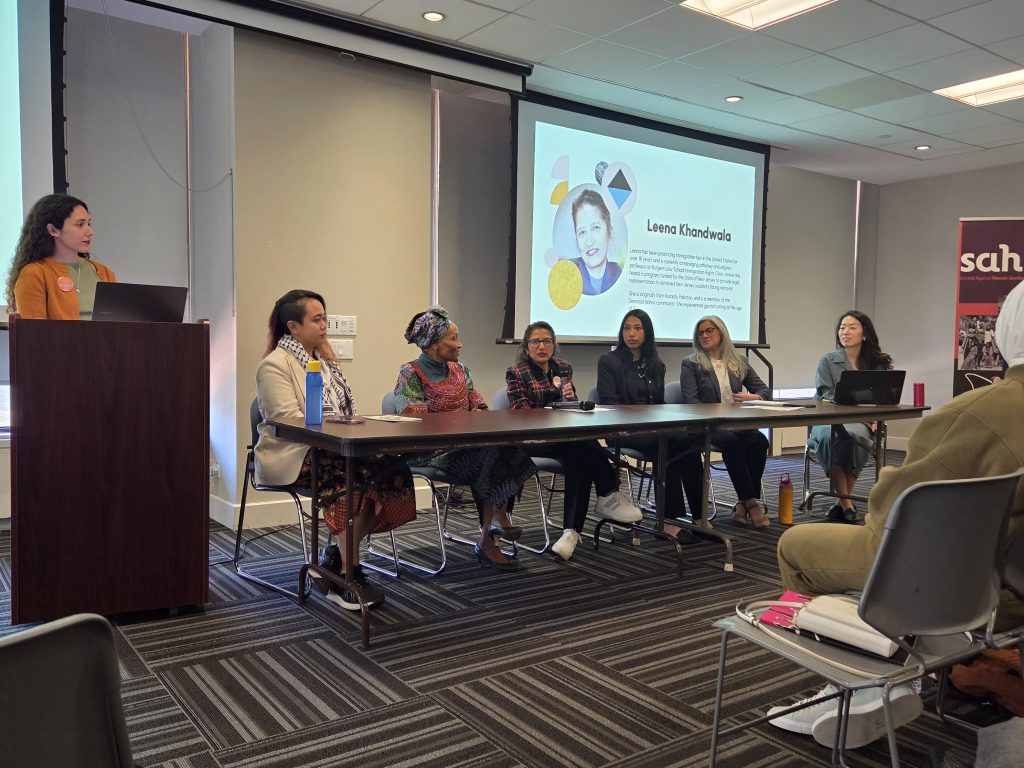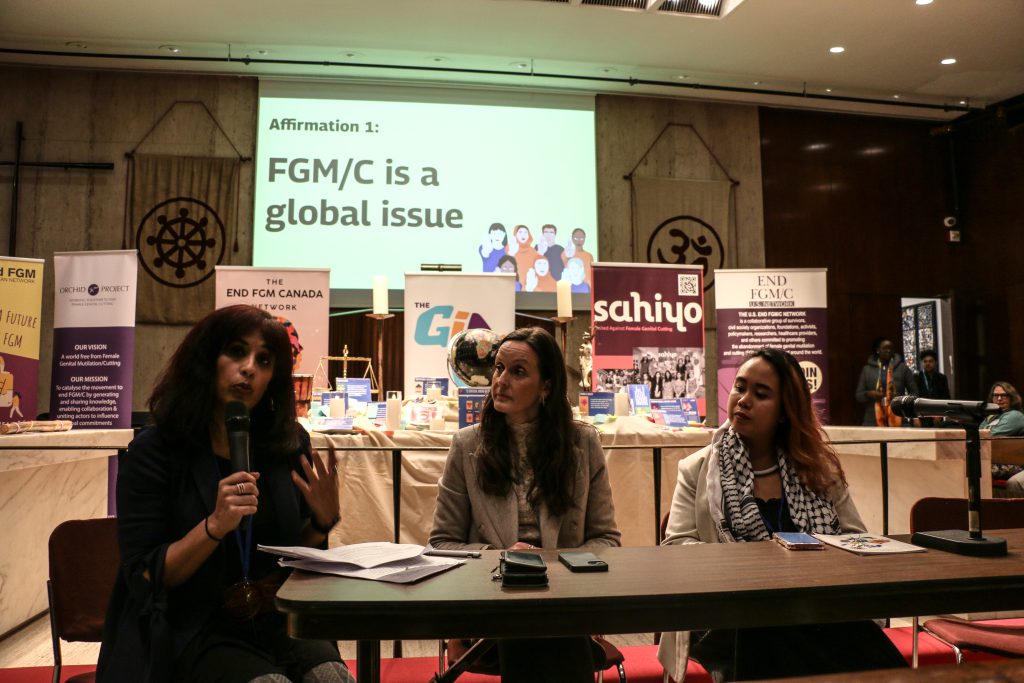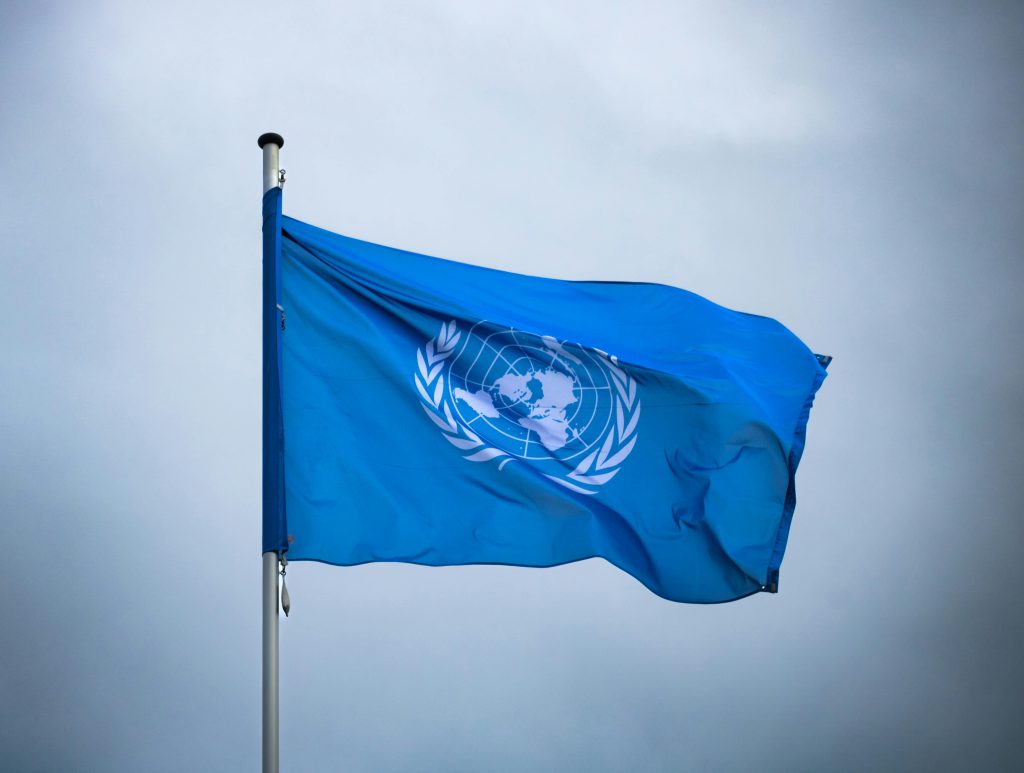Reflecting on “Storytelling as a Tool for Female Genital Mutilation/ Cutting (FGM/C) Survivor-Centered Change” at CSW 69

On March 18, 2025, Sahiyo co-hosted a powerful parallel session during the 69th Commission on the Status of Women titled “Storytelling as a Tool for FGM/C Survivor-Centered Change.” Organized in partnership with the Voices to End FGM/C program collaborators—Silence Speaks and the Asian Women’s Shelter—the event took place at the Church Center for the United Nations in New York. The event highlighted the experiences and powerful narratives of survivors and advocates, exploring storytelling as an effective method to foster understanding and drive social change. The session was facilitated by Sahiyo co-founder and Executive Director Mariya Taher and moderated by Su Young from the Asian Women’s Shelter. Speakers included Zehra Patwa, Dena Igusti, Saza Faradilla, Leena Khandwala, and Angela Peabody, each offering unique perspectives and deeply personal experiences to the conversation. During the panel, two of the storytellers, Zehra and Leena, reflected on the renewed and unexpected emotions they felt while watching their digital stories again. As participants in Sahiyo’s inaugural Voices to End FGM/C workshop (formerly called Sahiyo Stories), it had been a long time since they’d both viewed their stories, particularly in a public setting. This moment reminded us how powerful and vulnerable storytelling can be—even long after the initial release of the stories. As members of the Dawoodi Bohra community, both Zehra and Leena spoke about the resistance they’ve faced for addressing FGM/C openly. Still, they each shared how, at different moments in their journeys, speaking out has not only empowered them personally but has also helped spark dialogue and awareness within their families and broader social circles. Another impactful moment was the discussion around language. Saza, who recorded her story in Bahasa Melayu, shared that although she doesn’t feel especially fluent in her community’s native tongue, she felt strongly that it was important to tell her story in that language. For her, doing so was a way to reach members of her own community in Singapore and the broader diaspora. She expressed hope that her story might resonate with communities in Malaysia, Indonesia, and Brunei, where similar experiences are generally underrepresented, and oftentimes never even spoken of. Angela also shared a deeply personal reflection. Though not a survivor herself, she spoke about how creating her digital story during the workshop marked the first time she talked openly about what happened to her childhood friend who underwent FGM/C. She recalled seeing her friend again two years after she went into the Greibo bush and wondering why she no longer wanted to play with her. Angela’s story was a powerful reminder of how FGM/C can impact not only those who experience it directly but also those around them. Dena, a trans-nonbinary survivor of FGM/C, spoke openly about the internal struggles they faced while developing their digital story. They described grappling with feelings of not being “trans enough,” or even “a survivor enough.” Their vulnerability in naming these feelings brought attention to the nuanced layers of identity, belonging, and validation that many look for when deciding to share their stories publicly. Many attendees were excited and expressed a desire to see more of the digital stories and learn from Sahiyo’s storytelling model. We’re hopeful that these conversations will lead to new partnerships and expanded opportunities to support survivors in sharing their experiences, on their own terms and in their own voices. Visit our Voices to End FGM/C website to learn more!
Reframing FGM/C Through an Intersectional Lens at CSW69

On March 13, 2025, the Global Platform for Action to End FGM/C hosted a powerful session at the 69th Commission on the Status of Women (CSW69), titled “Reframing FGM/C Through an Intersectional Lens.” Held at the Church Center for the United Nations, this event created a space for critical dialogue, collective reflection, and renewed commitments to ending female genital mutilation/cutting (FGM/C) worldwide. From the beginning, the energy in the room was palpable. The symbolic ringing of a bell every 12 minutes—representing the frequency of lives lost due to FGM/C— anchored the conversation in the real, ongoing consequences of the continuation of FGM/C and the lives lost. The event was structured around three affirmations designed to challenge dominant narratives about FGM/C, and offer a more inclusive and global reframing of the issue: Affirmation 1: FGM/C is a Global Issue Speakers Saza Fardilla (Asia Network to End FGM/C and End FGC Singapore), and Line Baago-Rasmussen (UNICEF), used the latest data to disrupt the misconception that FGM/C only occurs in specific regions. They underscored the need for a truly global response that includes often-overlooked areas such as Asia and diaspora communities. Saza shared insights from her advocacy in Singapore, highlighting how FGM/C continues to affect the Malaysian Muslim population in Singapore. She emphasized that, in her opinion in the Singaporean context, criminalization of FGM/C may not be the most effective or just solution—especially given the potential for further marginalization of an already disadvantaged minority population. Instead, she advocated for a model grounded in community education and collective responsibility. This context-specific approach focuses on engaging communities through dialogue, awareness-building, and and trust-based interventions to address FGM/C. Affirmation 2: FGM/C is a potentially life-threatening form of SGBV and violence against children This segment, which featured remarks from Dr. Leyla Hussain (The Girl Generation), and Professor James Rockey (Birmingham University), reframed FGM/C as not just a cultural issue, but a serious form of sexual and gender-based violence (SGBV) and child abuse. Professor Rockey shared findings from his recent study, revealing that FGM/C is responsible for approximately 44,000 deaths annually across 15 countries where the practice is prevalent. That equates to one girl or young woman dying every 12 minutes due to FGM/C-related complications. They also addressed how mainstream narratives often exclude or dilute certain forms of genital harm, such as labiaplasty or the “husband stitch,” further complicating advocacy efforts. Audience members explored how redefining FGM/C within the SGBV framework can open doors for deeper policy and health system integration. Affirmation 3: We need to expose the manipulative narrative around FGM/C in anti-rights agenda Speakers Marianne Nguena Kana (End FGM European Network) and Caitlin LeMay (US End FGM/C Network) tackled the ways anti-rights movements in the U.S. and Europe have co-opted FGM/C narratives to advance xenophobic or anti-immigrant agendas. A particularly troubling aspect discussed was the conflation of FGM/C with gender-affirming care, especially within the United States. This conflation has been exemplified by recent political actions, such as the executive order issued by President Donald Trump on January 28, 2025, titled “Protecting Children from Chemical and Surgical Mutilation.” This order erroneously equates gender-affirming treatments for transgender youth with female genital mutilation, directing the Department of Justice and state authorities to prioritize the enforcement of laws banning FGM/C in contexts unrelated to their original intent. By exposing these manipulations, they emphasized the importance of survivor-led messaging that resists political exploitation and centers on community well-being. As the event drew to a close, participants were left with a renewed understanding of why framing matters—not just in the language we use, but in how we shape policies, allocate funding, and build global solidarity. The conversations had reaffirmed the necessity of listening to and learning from those most impacted by FGM/C, and ensuring that all strategies to end this form of gender-based violence reflect diverse, lived realities. The liveliness and depth of the conversation could have easily continued well beyond the scheduled time, but of course, we had to bring the event to a close. We look forward to future opportunities to bring the issue of FGM/C to the world stage—centering intersectional approaches, community-driven solutions, and survivor-led advocacy every step of the way!
Join Sahiyo, the Asian Women’s Shelter, and Silence Speaks for a Parallel Event at the 69th Session of Commission on the Status of Women in New York

On March 18, 2025, Sahiyo, in collaboration with the Asian Women’s Shelter and Silence Speaks, will host a parallel event at the 69th Session of the Commission on the Status of Women (CSW69) in New York City (NYC). The Commission on the Status of Women (CSW) is a global body committed to the protection, advancement, and empowerment of women. Launched in 1941, CSW seeks to highlight the lives of women and girls around the world and find solutions to the problems that face them, such as poverty, education, the gender pay gap, and violence. This year’s commission will take place from March 10 to 21, 2025 in NYC. Sahiyo’s event, “Storytelling as a Tool for Female Genital Mutilation/ Cutting (FGM/C) Survivor-Centered Change,” will feature a selection of compelling stories from our Voices to End FGM/C program showcasing the resilience and courage of survivors. We will explore our storytelling approach and its effectiveness in advocacy and support for survivors of FGM/C, providing insights into how these narratives have been utilized to drive systemic change and enhance culturally competent care. The Voices alumni attending this event are Leena Khandwala, Saza Faradilla, Dena Igusti, and Zehra Patwa. Additionally, there will be a panel discussion with Voices alum to allow the storytellers to discuss how their stories have supported and uplifted their work, their conversations on FGM/C, and benefited their healing as survivors themselves. The storytellers will also discuss how their stories have been used to further impact in the overall movement to end FGM/C. The event will be moderated by Mariya Taher, Executive Director and Co-founder of Sahiyo, and Su Young, Associate Director of Asian Women’s Shelter. We look forward to connecting with individuals dedicated to ending FGM/C and those eager to learn more about this critical issue. Event Details: Date: Tue, 18 March, 2025 Time: 12:30 pm – 2:00 pm ET Location: Church Center for the United Nations (CCUN), 2nd Floor, 777 United Nations Plaza, New York, NY 10017 Registration: https://bit.ly/SahiyoCSW69
